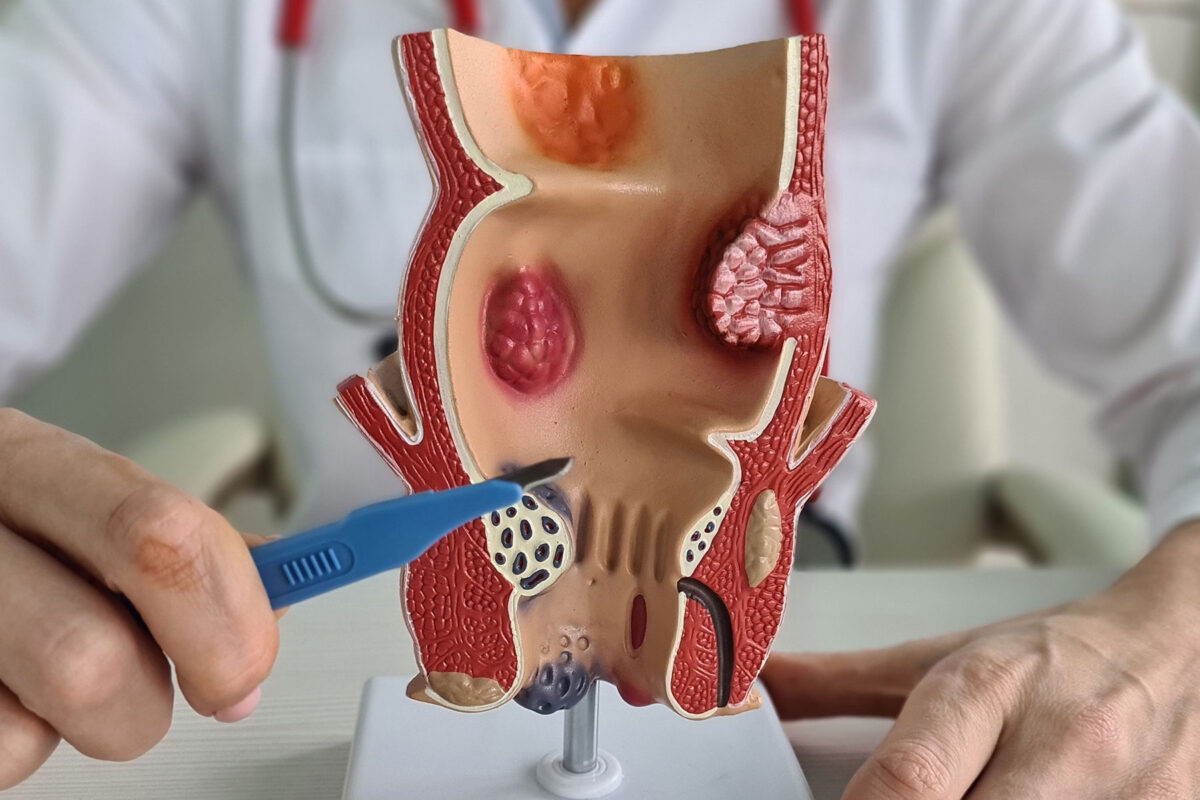

Hemorrhoids, swollen and inflamed blood vessels in the rectum and anus, can cause discomfort, pain, and disruption to daily life. While many cases can be managed with non-surgical treatments, severe or persistent hemorrhoids may require a more definitive solution, such as a hemorrhoidectomy. This surgical procedure aims to alleviate the symptoms associated with hemorrhoids and improve the overall quality of life for individuals facing this common yet often inconvenient condition.


Hemorrhoids, swollen and inflamed blood vessels in the rectum and anus, can cause discomfort, pain, and disruption to daily life. While many cases can be managed with non-surgical treatments, severe or persistent hemorrhoids may require a more definitive solution, such as a hemorrhoidectomy. This surgical procedure aims to alleviate the symptoms associated with hemorrhoids and improve the overall quality of life for individuals facing this common yet often inconvenient condition.
Hemorrhoidectomy
Hemorrhoidectomy: A Surgical Solution for Hemorrhoid Relief
Understanding Hemorrhoids and Their Impact:
Hemorrhoids, also known as piles, can be caused by various factors, including straining during bowel movements, obesity, or prolonged sitting. Symptoms may range from mild discomfort to severe pain, itching, and bleeding. When conservative measures like dietary changes, increased fiber intake, and topical treatments fail to provide relief, a hemorrhoidectomy becomes a viable option to address persistent and symptomatic hemorrhoids.The Hemorrhoidectomy Procedure:
Hemorrhoidectomy involves the surgical removal of hemorrhoidal tissue, providing a long-term solution to alleviate symptoms. The procedure is typically performed under general anesthesia, and there are different techniques, including traditional, open surgery and newer minimally invasive methods. During the surgery, the surgeon removes the swollen blood vessels, which may be internal, external, or a combination of both, to relieve pain, bleeding, and other associated symptoms.Recovery and Postoperative Care:
Recovery from a hemorrhoidectomy varies depending on the specific surgical technique used and individual healing rates. Patients can expect some discomfort and pain in the days following the procedure, which can be managed with prescribed pain medications and sitz baths. It is crucial to follow postoperative care instructions, including dietary modifications and hygiene practices, to promote healing and minimize the risk of complications.Benefits and Considerations:
Hemorrhoidectomy offers several benefits, including long-lasting relief from the symptoms of hemorrhoids. It is particularly effective for individuals with large or prolapsed hemorrhoids that do not respond well to less invasive treatments. While the surgery is generally safe, potential risks and complications, such as bleeding, infection, or temporary difficulty with bowel movements, should be discussed with the surgeon during the preoperative consultations.Patient Education and Consultation:
Before undergoing a hemorrhoidectomy, patients should engage in open communication with their healthcare provider to thoroughly understand the procedure, potential risks, and expected outcomes. The surgeon will assess the severity of the hemorrhoids, the patient’s overall health, and discuss the most appropriate surgical approach based on individual circumstances. Hemorrhoidectomy stands as a reliable and effective surgical option for individuals facing persistent and symptomatic hemorrhoids that significantly impact their daily lives. While the decision to undergo surgery should be made in consultation with a qualified healthcare professional, this procedure has provided relief to countless individuals, allowing them to regain comfort and resume their normal activities without the hindrance of chronic hemorrhoidal symptoms. As with any medical intervention, informed decision-making and adherence to postoperative care are integral to ensuring a successful outcome.A hemorrhoidectomy is a surgical procedure performed to remove swollen and inflamed blood vessels in the rectum and anus, known as hemorrhoids. It is typically recommended when conservative treatments, such as dietary changes, increased fiber intake, and topical medications, fail to provide relief for persistent and symptomatic hemorrhoids. The surgery is considered for individuals with severe or large hemorrhoids that significantly impact their quality of life, causing pain, bleeding, or other persistent symptoms.
Recovery from a hemorrhoidectomy varies among individuals but generally involves a period of discomfort and mild pain. Patients may be prescribed pain medications and are advised to take sitz baths to ease the discomfort. The recovery period typically includes dietary modifications to prevent constipation and promote healing. It’s essential to follow postoperative care instructions provided by the surgeon, and individuals may gradually resume normal activities as they recover.
Like any surgical procedure, a hemorrhoidectomy carries certain risks and potential complications. These may include bleeding, infection, difficulty with bowel movements, or rare instances of incontinence. The likelihood of complications is influenced by factors such as the patient’s overall health, the severity of the hemorrhoids, and the surgical technique employed. Patients should thoroughly discuss potential risks and complications with their healthcare provider during preoperative consultations to make an informed decision about the procedure.
Schedule Your Appointment Now
Begin your journey to a more radiant, confident version of yourself by contacting us today. We recognize that every individual’s path is distinct, and we’re here to support you through yours.

